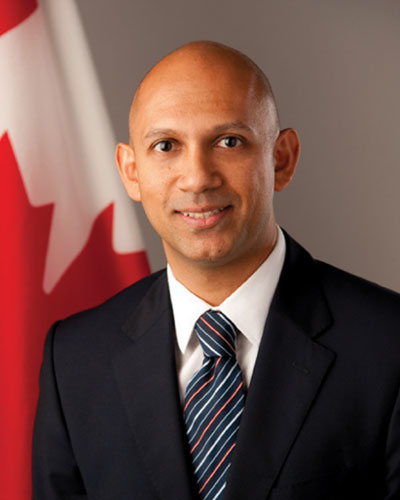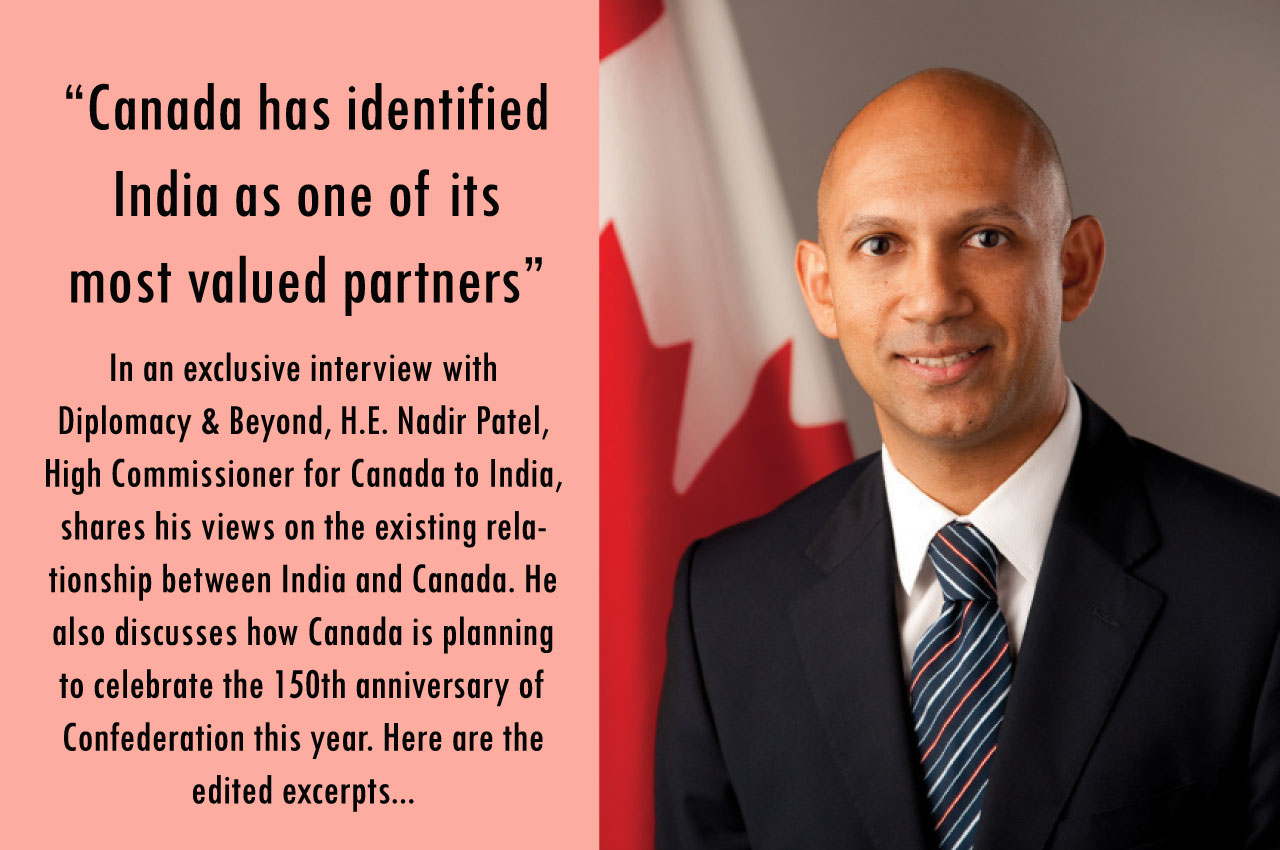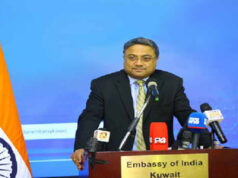
In an exclusive interview with Diplomacy & Beyond, H.E. Nadir Patel, High Commissioner for Canada to India, shares his views on the existing relationship between India and Canada. He also discusses how Canada is planning to celebrate the 150th anniversary of Confederation this year. Here are the edited excerpts…
- To begin with, His Excellency, how do you describe your stay in India so far both in personal and professional terms?
It has been two-and-a-half years since I arrived in India and the experience has been terrific both professionally and personally. On the professional side, the relationship between both countries has grown considerably in all sectors. In this period of time, the two-way trade is up 20 percent. The investment from Canada to India is up around $15 billion. There are over 1,000 Canadian companies doing business in India currently, and about 400 of those are physically present here. In this span, there has been an increase in education ties between the two countries as the number of Indian students studying in Canada has increased. In the last 9 months, 8 cabinet ministers from Canada have visited India. Indian Prime Minister Narendra Modi has already toured Canada and our Prime Minister (Justin Trudeau) is expected to visit India soon. There have been 3 non-stop flights between India and Canada in these years. Overall, it has been a very satisfactory experience.
- How have things progressed in the field of trade and commerce between India and Canada so far?
I have already shared some statistics regarding this. We have a balanced trade sheet between both countries. The active companies, flights and business investors, about which I have already articulated, clearly show that commercial relations between our two nations are strong. A part of this is also due to the confidence that the Canadian companies have in the Indian market right now and the economic reforms brought in by the Indian government. Canada has identified India as one of its most valued partners. I feel this momentum will continue in the future as well. I am very optimistic about this relationship.
- Substantial amount of work is being done in sectors such as Smart Cities, clean energy management, and renewable energy between both countries. Please throw some light on the same.
Right from the start, Canada has been a part of India’s Smart City initiative. According to The Economist publication, Canada is home to 3 out of the top 5 Intelligent Cities in the world. We have hundreds of companies in Canada in the Smart City space which are active in India. The companies from Canada are involved in infrastructure, water management, waste management, clean energy management, traffic solutions, urban planning and engineering services. In addition, Canada is the fourth largest exporter of engineering services in the world. A number of companies are active in various cities in India in the fields of infrastructure, engineering and others.
- The Canadian Prime Minister Justin Trudeau recently said that the Sikh community deserves an unconditional apology for the Komagata Maru incident that occurred over 100 years ago. This gesture by the prime minister attracted lots of praise for him and the elected government. How do you see this entire episode?
Our Prime Minister apologized in the House of Commons for the entire Komagata Maru incident since it was not a pleasant mark on Canada’s history. A public apology like this was a very mature and quite uncommon way to approach this incident.
- Canada is celebrating 150th anniversary of Confederation this year. How is the Canadian government planning to commemorate the occasion?
We have a series of events throughout the year to celebrate Canada’s 150th anniversary. This includes various cultural, art and film programs. We are also hosting events in different cities across the world where we have a diplomatic presence. We will have big events in Delhi, Mumbai, Bengaluru and other Indian cities. The National Day week will be celebrated across the country.
In addition to that, in mid-June, I will be leading a delegation of 150 Indian companies to Canada. It will be to showcase Indian business opportunities in Canada, and to arrange business-to-business meetings between companies of both countries. It is something that has never been done before on this scale.
- Where does Canada find itself standing at present on the global platform in the bygone 150 years?
We continue to demonstrate leadership as member of the G20 and the G7. As our Prime Minister has already stated clearly, we have a strong commitment to multilateralism, inclusiveness, multiculturalism, and diversity in welcoming visitors to Canada. If you take all of that, it makes Canada a natural leader to have a seat in the UN Security Council. Our prime minister is playing a leadership role that is highly valued worldwide.
- The Canadian Parliament constitutes 19 Indo-Canadian faces at present. It shows the kind of hold Indian Diaspora observes in Canada in the political sphere. In addition, it sends a wonderful message of how Canada practices multiculturalism to the best possible extent. Sir, share your views on the matter?
Apart from 19 members of Parliament of Indian-origin, we also have many others from different ethnicities, cultures and countries. It showcases what Canada has to offer, and how it truly is a land of opportunities. In addition to that, having different backgrounds represented in parliament is a great asset in public policy making.
- What is your message for the readers of Diplomacy & Beyond magazine?
It is a very exciting time to be here in India, and to see the growing Indo-Canadian relationship. We look forward to an even stronger relationship in the next 150 years.









